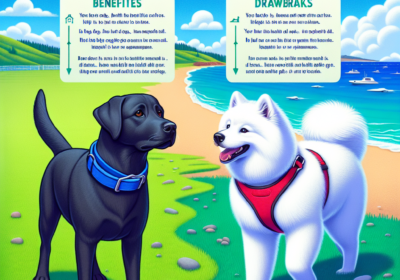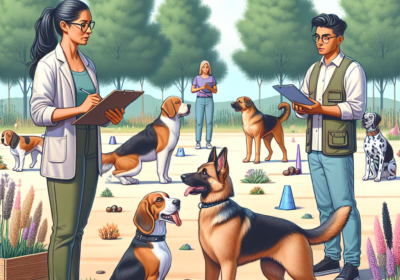Common Health Issues in Dogs and How They Can Be Prevented
If your dog seems to be experiencing any health issues, it’s important to get them diagnosed by a veterinarian. They’re licensed to diagnose and treat many different ailments, and they have years of training.
One of the most common problems dogs face is dental disease. Over time, plaque can build up and cause a variety of dental problems.
1. Skin Allergies
Skin allergies are the most common health problem that pet parents seek veterinary attention for. These conditions range from mild to serious and can lead to hair loss, redness or scabs.
Allergies are caused by the immune system overreacting to a specific allergen. This can be a food allergy, environmental allergen or an infection.
The best way to prevent skin allergies is to avoid exposing your dog to the things that cause them. This includes flea prevention, changing your dog’s diet and keeping the environment clean.
If your dog has skin allergies, make sure to bathe them at least once a week with a medicated shampoo that contains antihistamines or steroids. This will help relieve itching and keep the coat healthy. It also helps remove any allergens that may be building up.
2. Malign Tumors
Malign tumors in dogs can appear in many different forms, from simple pimples or cysts to wart-like growths on the skin. Tumors can be benign (not cancerous) or malignant (cancerous).
Benign tumors are usually easy to remove surgically. However, some tumors are more difficult to treat.
Some tumors can spread to other areas of the body or even cause other health issues in your dog. This is why it is important to have your vet examine your dog regularly.
Among the most common types of canine cancers are squamous cell carcinomas and mast cell tumors. Squamous cell carcinomas can be caused by prolonged sun exposure, so limiting your dog’s exposure to UV rays may help prevent this type of cancer.
3. Ear Infections
If your dog shakes their head or scratches their ears, they may have an ear infection. These infections are caused by overgrowth of bacteria and yeast in the ear canal.
These germs are normally present and harmless; however, they can grow unchecked if the normal barrier around your dog’s ear is damaged or disrupted.
Ear infection symptoms can include a bacterial or yeast discharge, pain, redness, and a foul odor.
Chronic cases of ear infection can also cause your dog to develop crusts or thickening of their ear canal. The ear canals become narrowed and the dog’s hearing can suffer, as well.
Ear infections can be a chronic problem and your veterinarian will need to diagnose the underlying cause of the infection. This can be done through a thorough skin and ear examination. Sometimes a biopsy or X-rays are necessary.
4. Cataracts
Cataracts are a common problem affecting dogs as they age. They can be difficult to diagnose and prevent, but there are ways to minimize your dog’s risk.
Symptoms of cataracts in dogs can vary widely, but the most common is an eye that looks cloudy and dull. Other symptoms may include squinting, redness, and irritation.
As with other health issues in dogs, prevention is always better than cure. Feeding your dog a healthy diet and avoiding toxins can help lower their risk of developing cataracts.
Cataracts usually develop as dogs age, but they can also be hereditary. If your dog has a family history of this eye condition, it’s important to make sure she gets regular exams and screenings to prevent the condition from worsening over time.
5. Bad Breath
Bad breath is one of the most common health issues in dogs, but it can be prevented with regular dental care, proper nutrition and a healthy lifestyle.
Bad dog breath is often a sign of dental disease, but it can also be a symptom of other serious conditions like kidney or liver disease. A sweet or fruity odor, urine odor or foul-smelling gums are all symptoms that indicate a serious condition and should be treated immediately by a veterinarian.
In addition to bad breath, other causes of halitosis in dogs include parasites, poor nutrition, malabsorption issues, diabetes, Cushing’s disease, thyroid disease or a reaction to drugs. Eating fecal matter, such as dog or cat feces, is another issue that can make your pet’s breath smell fetid.
6. Gum Disease
Gum disease, also known as periodontal disease, is a silent disease that can affect your dog’s oral health and overall wellbeing. It can cause chronic pain, tooth loss and gum erosion if it is not treated properly.
The bacteria found in plaque irritates your dog’s gums and triggers the body’s immune system to attack the tissues and bone around their teeth. The result is inflammation, destruction of tissue and bone, and bone loss.
The most important thing you can do to prevent gum disease in your dog is to brush their teeth daily. A good brushing routine and a diet with appropriate ingredients, high in protein and low in carbohydrates, will help keep their mouths clean.
7. Arthritis
Arthritis is a progressive condition that causes pain, stiffness and lameness in your dog’s joints. It can be caused by many factors, including obesity, injury, genetics, and metabolic disorders.
Your veterinarian will diagnose arthritis based on a thorough medical history and examination of your pet’s legs. The doctor will take X-rays to determine which joints are affected.
If your dog does have arthritis, the vet will prescribe a treatment plan to reduce inflammation and pain, improve mobility, and slow down joint damage. The plan may include diet, exercise, and medication.
The most common form of canine arthritis is osteoarthritis, which involves the breakdown of cartilage in the joints. It can also cause painful bone spurs.
8. Parasite Infestations
Parasites are often hidden in dogs’ stools or in the environment and can be dangerous if not detected and treated early on. Fortunately, parasite prevention methods are available to help prevent fleas & ticks and heartworm disease.
Intestinal parasites are also commonly found in dogs and can cause a variety of health problems, including anemia, diarrhea and weight loss. Symptoms may not appear until the infestation has become severe, so regular fecal exams by your veterinarian are important to catch infections before they progress.
Intestinal worms spread their eggs via their host’s stool. This is why it’s important for pet parents to pick up a dog’s poop promptly after it’s removed and wash hands thoroughly afterward. Additionally, dogs can carry worm eggs in the soil wherever they go outside to go to the bathroom. These can contaminate the ground for weeks or longer after the poop has been disposed of.
9. Weight Gain
Weight gain in dogs can be caused by a variety of medical conditions, as well as overeating or lack of exercise. It can also be due to genetics, and certain breeds are more likely to gain weight than others.
The first thing you can do to prevent weight gain is to ensure that your dog gets sufficient exercise. Some dogs need more exercise than others, but all can benefit from a daily walk and some playtime in the garden.
Another way to help your dog maintain a healthy body weight is to limit his intake of calorie-rich human food. You can do this by spacing out his meals over a few days.
10. Cancer
Cancer is a common health concern in dogs and is the leading cause of death in pets over 10 years of age. While some types of cancer are more prone to occur than others, early detection is critical to successfully treating your pet and returning them to good health.
While there are no preventive measures that can be taken to avoid cancer, veterinarians can help your pet stay healthy by offering routine physical examinations and screening tests for cancer.
Some of the most common forms of cancer include soft tissue sarcoma and osteosarcoma. The latter accounts for up to 85% of primary bone tumors. Osteosarcoma is an aggressive type of cancer that is often characterized by painful local bone destruction and distant metastasis (spread to other organs). Squamous cell carcinoma is another form of cancer that can develop in the mouth or nail beds, but is less common.







![The Dog Podcast Uncovers Startling Truths About What We Feed Our Dogs [Press Release]](https://yourhomeandgardenhub.com.au/wp-content/uploads/2024/08/dog-bowl-400x280.webp)


![The Dog Podcast Uncovers Startling Truths About What We Feed Our Dogs [Press Release] The Dog Podcast Uncovers Startling Truths About What We Feed Our Dogs [Press Release]](https://yourhomeandgardenhub.com.au/wp-content/uploads/2024/08/dog-bowl-75x60.webp)